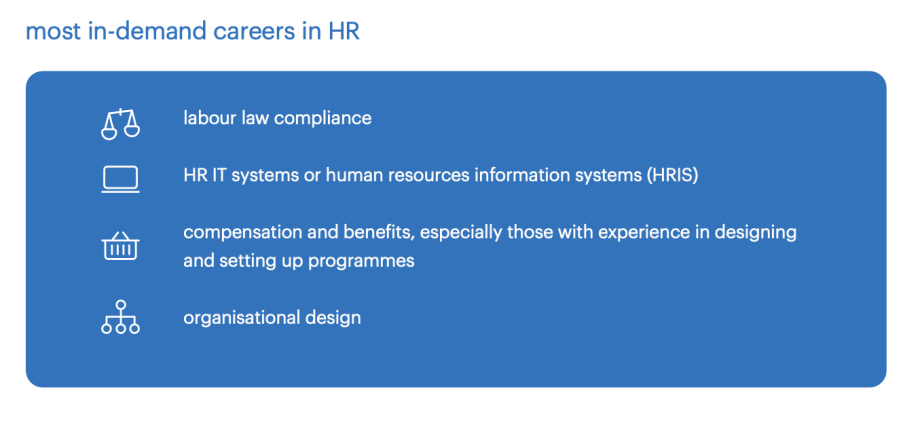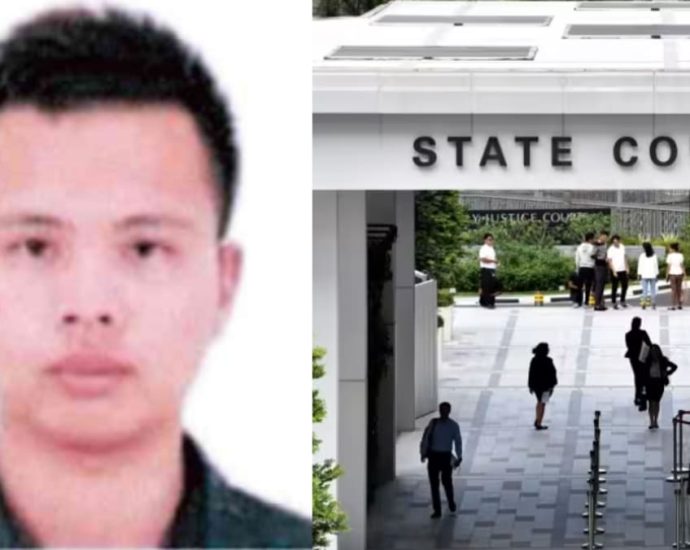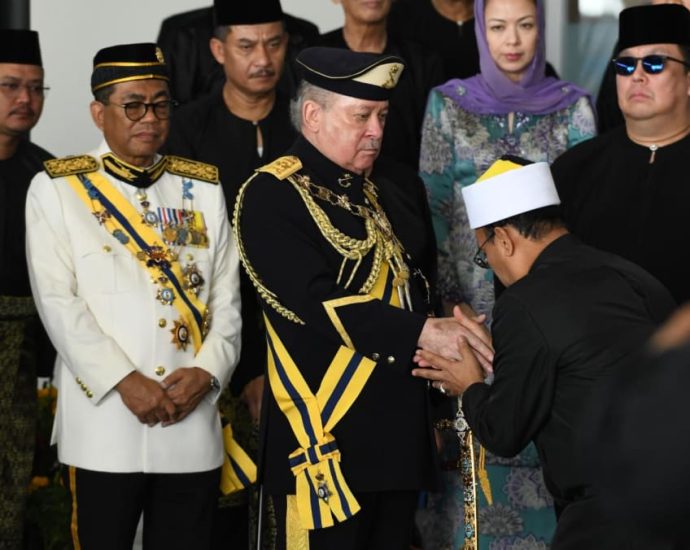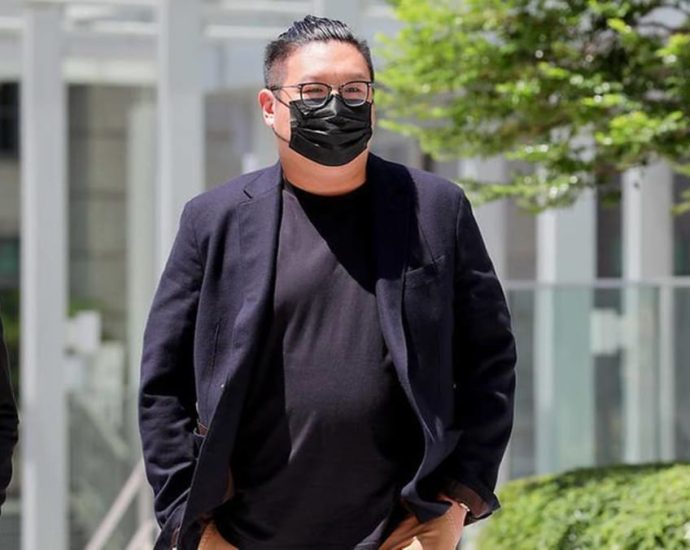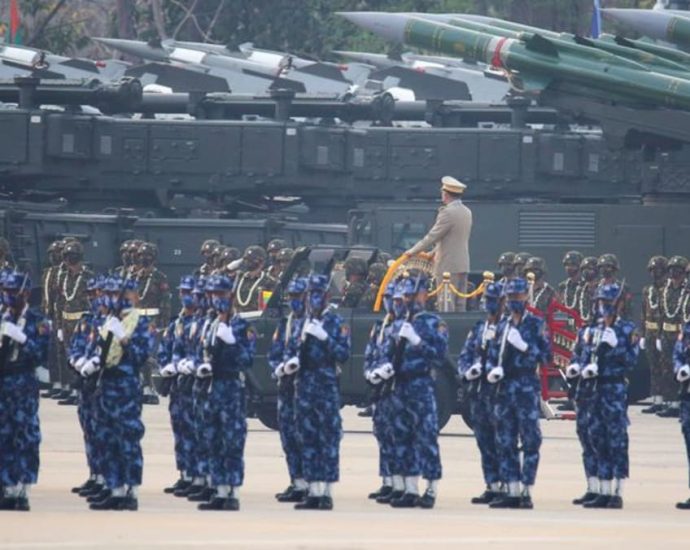Randstad Malaysia released the 2024 job market outlook & salary guide report
Companies seek talent in gaming, cybersecurity, renewable energy & data analytics
Cost, flexible work crucial in today’s talent market, with M’sians seeking higher-paying jobs, non-monetary benefits
Randstad, the world’s largest talent agency has released the 2024 Job Market Outlook and Salary Trends Report in Malaysia to help employers and job seekers navigate the…Continue Reading
Billion-dollar money laundering probe: Man accused of lying to get work passes for himself and his wife

SINGAPORE: A man implicated in the billion-dollar money laundering probe involving suspects from China and luxurious property purchases has been handed fresh charges of lying to get work passes.
This comes just two days after Su Wenqiang received new charges for laundering about S$477,000 (US$355,770).
The 32-year-old Cambodian national who is originally from Fujian, China, allegedly lied in applications for work passes for himself and his wife.
According to the fresh charge sheets, Su signed and declared in an application for an employment pass in February 2022 that he would be employed as a sales director by Fleur Business Service.
However, he allegedly had no intention of working for the company.
Around the same time, Su allegedly conspired with a person known as “Wen Wen” to obtain a work pass for his wife, Su Yanping.
His wife and “Wen Wen” applied for the employment pass, declaring that she would be employed as a director of Ju You Family Office. However, the employment was allegedly false.
Su now faces 11 charges in all. According to the prosecution’s claims in previous court hearings, he was wanted in China and worked as an executive in a remote lottery business operating from the Philippines and Cambodia.
He then moved to Singapore with his two young children, intending for them to live here permanently.
He allegedly used S$500,000 from his illegal proceeds to buy multiple luxury goods including a Mercedes Benz vehicle and to pay for rental at lavish condominiums.
He is set for a pre-trial conference on Thursday.
‘His Majesty will set it right’: Optimism over Malaysiaâs new king as Johor ruler Sultan Ibrahim is sworn in
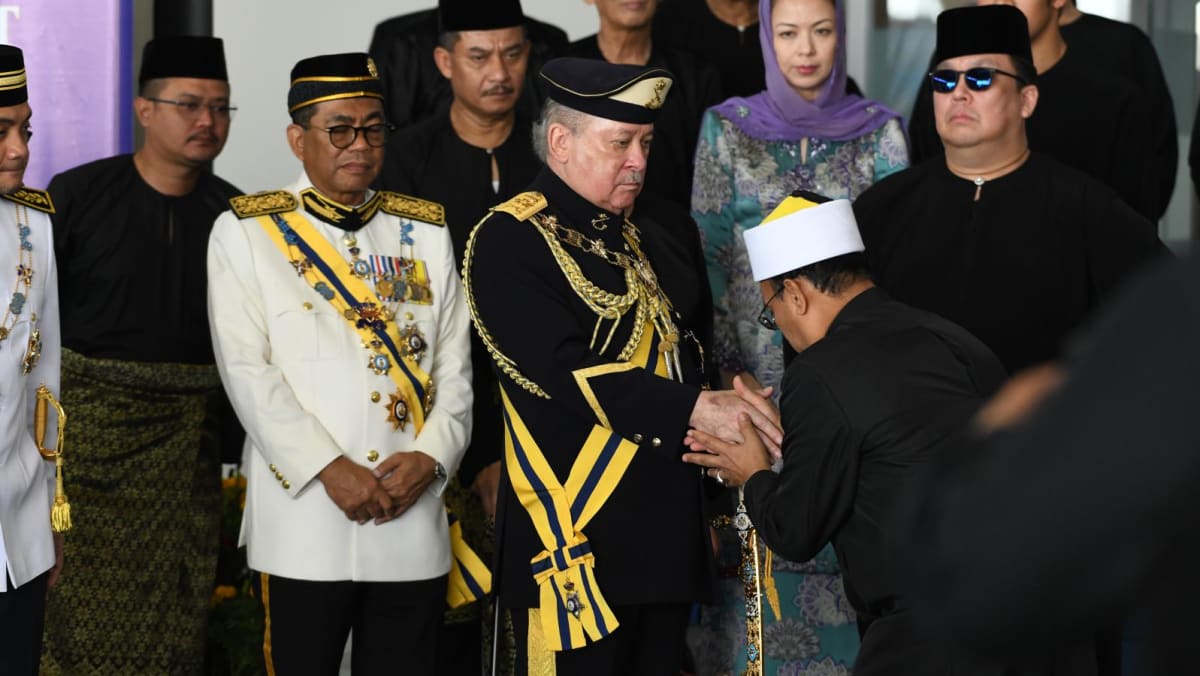
He noted that in recent times, the relationship between the different ethnic races in Malaysia has been tense, perpetuated by polarised political differences, and that the Johor Sultan will be the right person to unite the masses.
“Presently, we can see the relationship between the races are beginning to fracture,” said Mr Hussein.
“But I do believe that His Majesty will set it right to unite all people of Malaysia as one Bangsa Malaysia,” he added.
Mr Teh, the South Johor SME Association advisor, said Sultan Ibrahim could also improve Malaysia’s bilateral relations with some foreign countries through soft diplomacy, given his strong personal friendship with international world leaders.
“His Majesty … has very good international diplomatic connections, especially with Singapore,” said Mr Teh.
“We believe and we also hope that he can make Malaysia the choice to attract more foreign direct investments,” he added.
Political analyst Adib Zalkapli, director of public policy consulting firm BowerGroupAsia, told CNA the role of the monarch in Malaysia has evolved over the years.
He noted that previously, the king played a symbolic role as head of state. However, especially during the reign of Sultan Abdullah over the last five years, the king has been crucial in resolving political stalemates in Malaysia.
For instance, Sultan Abdullah played a key role in resolving the political impasse after the last 2022 general election ended in a hung parliament, when he appointed Anwar Ibrahim as prime minister to lead a unity government.
Mr Adib noted that Sultan Ibrahim’s outspoken style and willingness to lend advice in government matters means that the ruler would further shape the role of the monarchy.
“Sultan Ibrahim has always played a key role in the governance of the state. And I think with the expansion of the role of the Yang Di Pertuan Agong that we’ve seen over the last five years, it fits very well with Sultan Ibrahim’s character and style of ruling,” said Mr Adib.
“So it wouldn’t be a big surprise to Malaysia in general to see a more assertive monarchy in the coming years.”
S$1.5b Envy Global fraud case: Ex-director gets new charge of trying to launder S$500,000 in shophouse sale
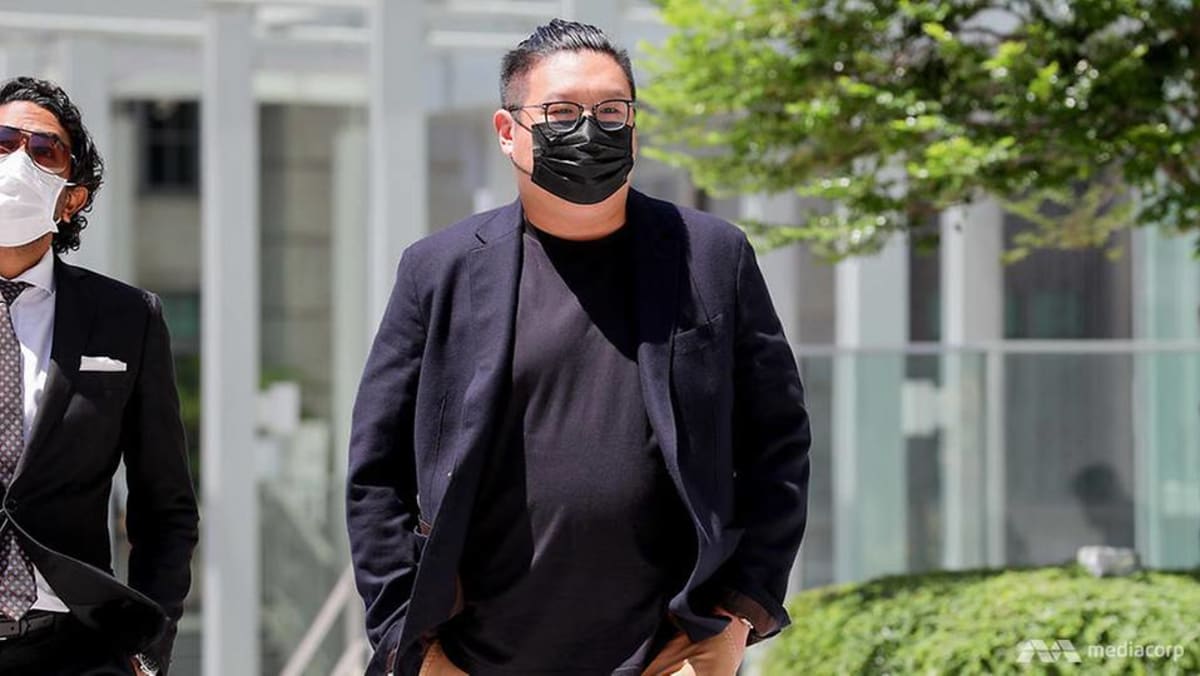
SINGAPORE: A businessman at the centre of an alleged billion-dollar nickel investment fraud case was slapped with a fresh charge of attempted money-laundering on Wednesday (Jan 31).
Ng Yu Zhi, a 36-year-old Singaporean who was formerly managing director at Envy Global Trading, is accused of trying to sell a shophouse at 13 Bussorah Street to a Gan Wee Pin for S$500,000 (US$372,800) in October 2023.
This was at a fraction of the S$5 million price he had purchased it for in the first place.
The property in the new charge is already part of his existing set of charges, numbering over a hundred.
Ng was already accused of laundering money by buying the shophouse in the first place in 2020 or 2021 with a sum of more than S$5 million that came from alleged criminal proceeds.
Those criminal proceeds are from the alleged fraudulent business by Envy Global Trading, according to previous charge sheets.
Ng was remanded in February 2023 after being unable to raise the increased bail of S$6 million sought by the prosecution.
This was after his bankruptcy proceedings revealed he had further undisclosed assets.
At the time, his then-lawyer had argued for a lower bail amount, saying Ng would not “run away” and “do that to his own father”, who raised the previous bail of S$4 million for his son.
However, Ng eventually managed to raise the increased amount and was out on bail when the fresh charge allegedly occurred.
He is currently detained at A Division at Police Cantonment Complex after attending an interview with the Commercial Affairs Department (CAD) on Monday.
On Wednesday, Deputy Public Prosecutor Gordon Oh sought seven days’ remand for Ng, saying there are further suspected incidents of money-laundering involving “many parties”.
He said there were also telecommunication devices found in Ng’s possession which require further review.
He sought no bail for Ng, saying there were risks of tipping off other suspected involved parties and potential destruction of evidence if he were released.
“There are also risks that computer evidence found in telco devices may be destroyed or compromised and other investigative leads from these devices or these persons may also be compromised,” said Mr Oh.
Defence lawyer Johannes Hadi from Eugene Thuraisingam’s law firm said that his client had attended the CAD interview on Monday morning.
“Investigations into these alleged offences have been ongoing since Monday. I just want to put this on record, so that by the time we get back next week, we will have a sense of how long the investigations had been going on and we can evaluate the position again then,” he said.
The lawyer added that this case has been ongoing for quite long, with intensive investigations.
The prosecution said the new charge involves property which is the subject matter of one of the charges that has been transmitted to the High Court.
Ng was first charged in March 2021 with cheating and fraudulent trading. His latest charge is his 107th.
He allegedly raised money from investors to purchase nickel, promising varying returns when the companies involved did not purchase any nickel.
The scheme allegedly cheated investors of about US$1.1 billion, and has already landed other men in jail for their attempts to help Ng flee Singapore.
The judge ordered Ng to be remanded for investigations and adjourned the case to next week.
4 men charged with forgery, submitting false documents for building works at Our Tampines Hub

SINGAPORE: Four men were charged on Wednesday (Jan 31) over creating or submitting false procurement documents relating to the development of Our Tampines Hub, a project under the People’s Association.
At the time of the offences between October 2017 and June 2019, Seet Thong Kok, 67, was a facilities manager with the term contractor engaged by PA for minor works.
He allegedly instigated the term contractor’s administrative staff to forge 18 quotations purportedly issued by other contractors.
The police said Seet had intended to deceive PA that the term contractor’s quotation was the lowest of the three quotations for the building works.
Seet was charged with forgery offences. If found guilty, he could be jailed for up to four years and fined.
Three other men – Vincent Chang Yew Teck, 63, Lee Kian Wee, 51, and Soh Chun Kang, 42 – were also charged with offences relating to furnishing false information to a public servant.
Chang was a deputy director of facilities management at the PA, while Lee was a senior facilities manager of contracts at the PA.
Soh was a senior key account manager of the then-managing agent engaged by the PA.
The trio are accused of engaging in a conspiracy to furnish backdated procurement documents to the Auditor-General’s Office (AGO) between December 2020 to February 2021, during the AGO’s audit of Our Tampines Hub development project.
A total of 142 allegedly backdated procurement documents were submitted to the AGO.
If found guilty, they could be jailed for up to six months and fined.
S$470,000 worth of drugs, including 2.6kg of cannabis, seized during raids
CNB officers intercepted and arrested a car driver, a 35-year-old Singaporean man, along Havelock Road in the late afternoon on Monday. They recovered about 955g of cannabis, 166g of Ecstasy, 138g of Ice, 24g of ketamine, 160 Erimin-5 tablets, 107 LSD stamps and five bottles of liquid suspected to containContinue Reading
There will be a sky lantern festival happening in Sentosa this February

Singaporeans need not head to Taiwan to catch a sky lantern festival this year as Sentosa will play host to the inaugural Singapore Sky Lantern Festival.
Held at Palawan Green on Feb 21, the family-friendly event lets attendees marvel at glowing sky lanterns against the night sky. It will also have an array of local and international food, as well as live shows which include a music festival and cultural performance.
There is a caveat, though. Unlike most sky lantern festivals that let lanterns fly freely, the Singapore Sky Lantern Festival has lanterns tethered to the ground via 60m-long strings. This is per Civil Aviation Authority of Singapore (CAAS) guidelines which state that “the free release of sky lanterns is not allowed in Singapore” and “tethered sky lanterns can only be released between 7pm to 7am the next day” on weekdays.
As such, the lanterns (which are biodegradable and made of oiled paper) will remain tethered to the ground and float in the sky for five to 10 minutes until the candles in them extinguish. Thereafter, the lanterns will be brought back to the ground by attendees. There will be five batches of lanterns to be released.
The event will run from 3pm to 12am, with the lantern release happening at 7.30pm. Tickets to the inaugural Singapore Sky Lantern Festival cost S$50, excluding booking fees, and can be purchased at Eventbrite. Students can score the tickets at just S$25.
In the meantime, Singaporeans looking to get their fix of breathtaking light displays in the night can head to the Light To Night festival which will end on Feb 8.
Myanmar junta eases election registration rules ahead of expiry of state of emergency
Myanmar’s military government on Wednesday (Jan 31) announced an easing of election registration rules for political parties, hours ahead of the expiry of a state of emergency in place since a coup three years ago. The junta, which has vowed to hold an election and return to democratic rule, saidContinue Reading
Event organisers, venue operators make efforts to go green amid growing consciousness

He noted that consumers today are not just aware of climate change but taking active steps in reducing their impact from day-to-day activities.
“Sustainability is now a requirement from our clients who want to do events … It is critical that our industry continues to make an effort and pursue sustainability as part of our greater initiative to continue to make Singapore the preferred MICE destination for the years to come,” he said.
The biggest challenge that faces the industry is the alignment of standards, especially in terms of measuring and reporting greenhouse gas emissions.
FIRMS NEED TO CATCH UP
Economist from CGS CIMB Securities Song Seng Wun said that while efforts are being made by sectors including the MICE industry, they are part of a transition that cannot take place overnight.
“(It) really is a case of how passionate the entertainer themselves are, the companies behind and the engagement with concert goers and fans is very important. If the fans leave with a message they can do more, I think that’s already half the battle won,” he said.
China’s factory activity shrinks again, weak demand hobbles economy
BEIJING: China’s manufacturing activity contracted for the fourth straight month in January, an official factory survey showed on Wednesday (Jan 31), suggesting the sprawling sector and the broader economy were struggling to regain momentum at the start of 2024. The official purchasing managers’ index (PMI) rose to 49.2 in JanuaryContinue Reading

